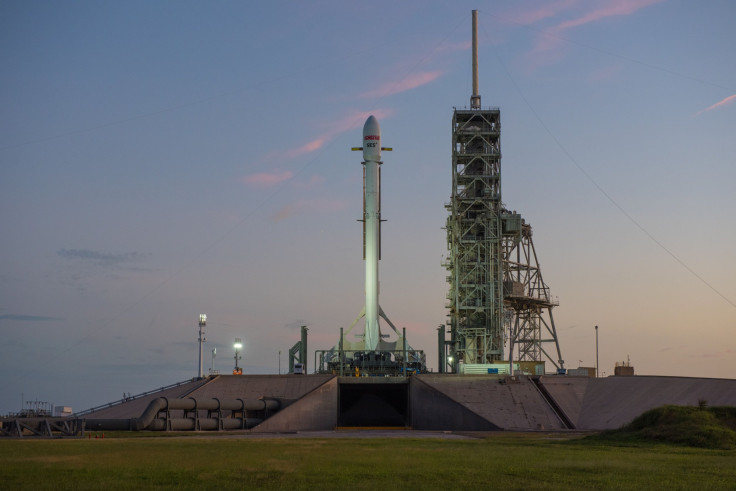SpaceX Mystery Launch: Permits Filed For Secret Payload Mission In November

SpaceX has a secret launch scheduled for November, filings with the Federal Communication Commission show. Applications were filed for both the launch of a Falcon 9 rocket as well as the recovery of the first stage of the rocket.
The mystery is in the payload though. Neither of the applications say what the rocket will be launching or for what company or agency. The nickname for the mission is “Zuma,” Spaceflight Now reported.
So far what is known from the application is that a Falcon 9 will be used to launch the payload and the first stage of it will be recovered. It will be launched from the Kennedy Space Center’s historic launch pad 39A where some of the most famous missions like the Apollo missions launched from.
The requested for a launch period is set to start on Nov. 10 and will be open until April 10 of next year. The application is for what is called a “special temporary authority,” or an STA. The description for the launch itself says, “This STA is necessary to authorize launch vehicle communications for SpaceX Mission 1390, from Complex 39A, Kennedy Space Center. Includes sub-orbital first stage, and orbital second stage. Trajectory data will be provided directly to NTIA, USAF, and NASA. All downrange Earth stations are receive-only. Launch licensing authority is FAA Office of Commercial Space Transportation.” There’s a separate application that covers the recovery of the first stage of the Falcon 9.
SpaceX has launched military payloads before the contents of which remained secret. Just this past April the company, which has a private contract with the United States Government for launches, launched a classified craft into orbit. It’s unclear whether this upcoming launch is something similar to that one or not.
SpaceX has had a tight schedules over the last several months to stay on track with the private launches it’s completing for private companies like iridium and EchoStar. Just last week SpaceX completed two launches within a three day period and successfully recovered the first stage of both rockets used for those launches.
The company also has plans to launch its Falcon Heavy rocket this November. Founder and CEO Elon Musk has tweeted about the progress of the Heavy as well as the plans to go ahead with testing and an eventual unmanned launch. Not only is the company working on improving rockets used for launching satellites and resupply missions to the International Space Station, it’s working toward its eventual goal of sending humans to space and Mars. Musk revealed updated plans for the company’s mission to the Red Planet at the International Astronautical Congress in Australia in September. Those plans now include a rocket that could transport humans around Earth in mere fractions of the time is currently takes to travel.
© Copyright IBTimes 2024. All rights reserved.











